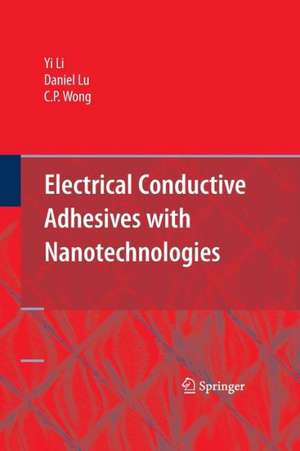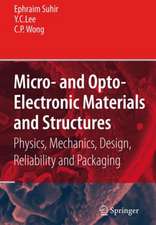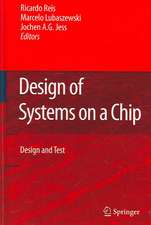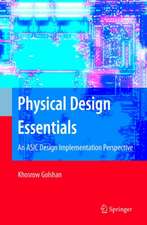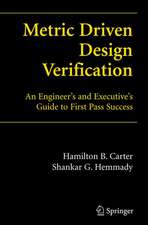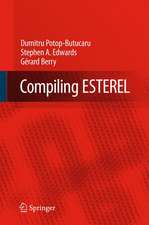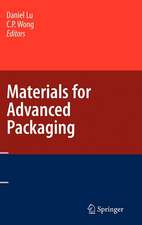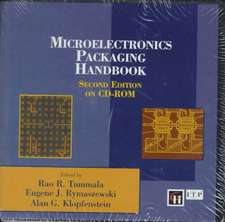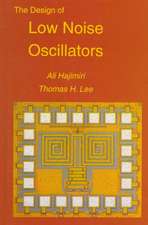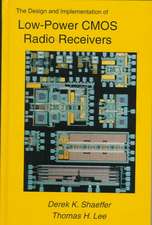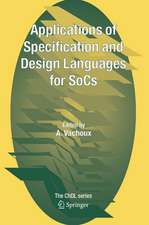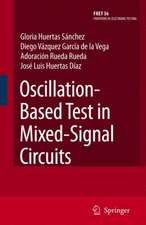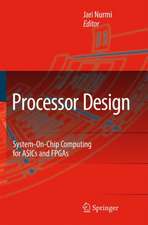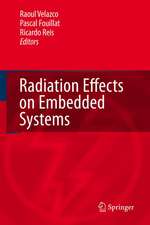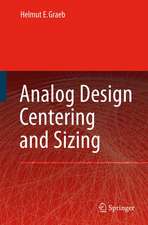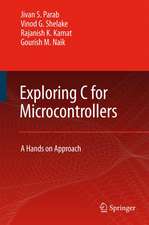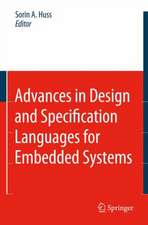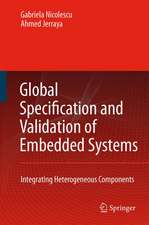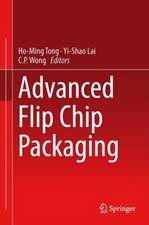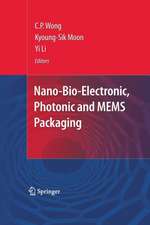Electrical Conductive Adhesives with Nanotechnologies
Autor Yi (Grace) Li, Daniel Lu, C.P. Wongen Limba Engleză Paperback – 5 sep 2014
| Toate formatele și edițiile | Preț | Express |
|---|---|---|
| Paperback (1) | 897.66 lei 38-44 zile | |
| Springer Us – 5 sep 2014 | 897.66 lei 38-44 zile | |
| Hardback (1) | 1121.43 lei 6-8 săpt. | |
| Springer Us – 16 oct 2009 | 1121.43 lei 6-8 săpt. |
Preț: 897.66 lei
Preț vechi: 1181.12 lei
-24% Nou
Puncte Express: 1346
Preț estimativ în valută:
171.82€ • 186.70$ • 144.42£
171.82€ • 186.70$ • 144.42£
Carte tipărită la comandă
Livrare economică 18-24 aprilie
Preluare comenzi: 021 569.72.76
Specificații
ISBN-13: 9781489983077
ISBN-10: 1489983074
Pagini: 452
Ilustrații: XII, 437 p.
Dimensiuni: 155 x 235 x 24 mm
Greutate: 0.63 kg
Ediția:2010
Editura: Springer Us
Colecția Springer
Locul publicării:New York, NY, United States
ISBN-10: 1489983074
Pagini: 452
Ilustrații: XII, 437 p.
Dimensiuni: 155 x 235 x 24 mm
Greutate: 0.63 kg
Ediția:2010
Editura: Springer Us
Colecția Springer
Locul publicării:New York, NY, United States
Public țintă
ResearchCuprins
Nanotechnology.- Characterizations of Electrically Conductive Adhesives.- Isotropically Conductive Adhesives (ICAs).- Anisotropically Conductive Adhesives/Films (ACA/ACF).- Non-Conductive Adhesives/Films (NCA/NCF).- Conductive Nano-Inks.- Intrinsically Conducting Polymers (ICPs).- Future Trend of Conductive Adhesive Technology.
Recenzii
From the reviews:
“This book is a review of the most recent advances in various types of electrically conductive adhesives, with a focus on emerging nanotechnology, including materials development and characterizations … . Our readers who are materials scientists and materials engineers who develop electrically conductive adhesives and conductive polymers for microelectronics applications would definitely find this book very interesting. It is an excellent resource of current ECA materials, processes, and technology … . This is truly a worthwhile reference book to own for those develop ECAs.” (Electrical Insulation Magazine, Vol. 27 (2), March/April, 2011)
“This book is a review of the most recent advances in various types of electrically conductive adhesives, with a focus on emerging nanotechnology, including materials development and characterizations … . Our readers who are materials scientists and materials engineers who develop electrically conductive adhesives and conductive polymers for microelectronics applications would definitely find this book very interesting. It is an excellent resource of current ECA materials, processes, and technology … . This is truly a worthwhile reference book to own for those develop ECAs.” (Electrical Insulation Magazine, Vol. 27 (2), March/April, 2011)
Textul de pe ultima copertă
Electrical Conductive Adhesives with Nanotechnologies begins with an overview of electronic packaging, discussing the various electrical adhesive options currently available. The book focuses extensively on Electrically Conductive Adhesives (ECAs), as well as other adhesives such as lead-free soldering, Isotropically Conductive Adhesives (ICAs), Anisotropically Conductive Adhesives/Films (ACA/ACFs) and Nonconductive Adhesives/Films (NCA/NCFs). The authors also present examples of how conductive adhesives can be applied to nano techniques, while making important mentions of recent research and development breakthroughs in the fields.
Drawing upon tireless research, years of theoretical development and practical experience, and utilizing numerous visual examples and illustrative applications, authors CP Wong, Yi Li and Daniel Lu cover electrically conductive adhesives in depth, while also describing:
Drawing upon tireless research, years of theoretical development and practical experience, and utilizing numerous visual examples and illustrative applications, authors CP Wong, Yi Li and Daniel Lu cover electrically conductive adhesives in depth, while also describing:
- The electrical properties, thermal performance, bonding pressure, assembly and reliability of numerous types of electrically conductive adhesives
- The similarities and differences between lead-free soldering techniques and electrically conductive adhesives, while also discussing the advantages of ECAs.
- Insights into the future of nano ECAs, as well as projections of future industry trends.
Caracteristici
Compares and contrasts lead-free soldering techniques and electrically conductive adhesives and discusses the advantages of electrically conductive adhesives Discusses isotropically conductive adhesives, anisotropically conductive adhesives/films, non-conductrice adhesives/films, their current applications, in industry, advantages and limitations, recent developments and nanotechnology applications Provides insight into the future of nano electrically conductive adhesives and industry trends Includes supplementary material: sn.pub/extras
